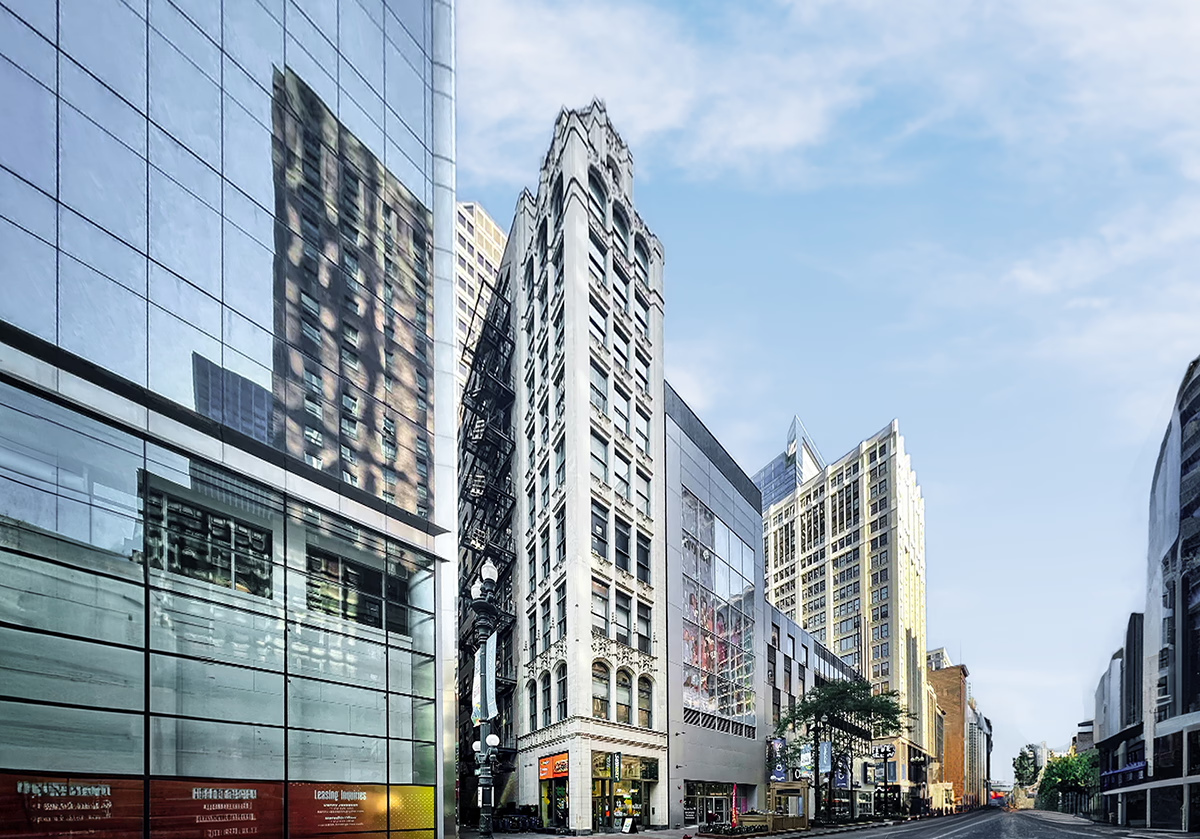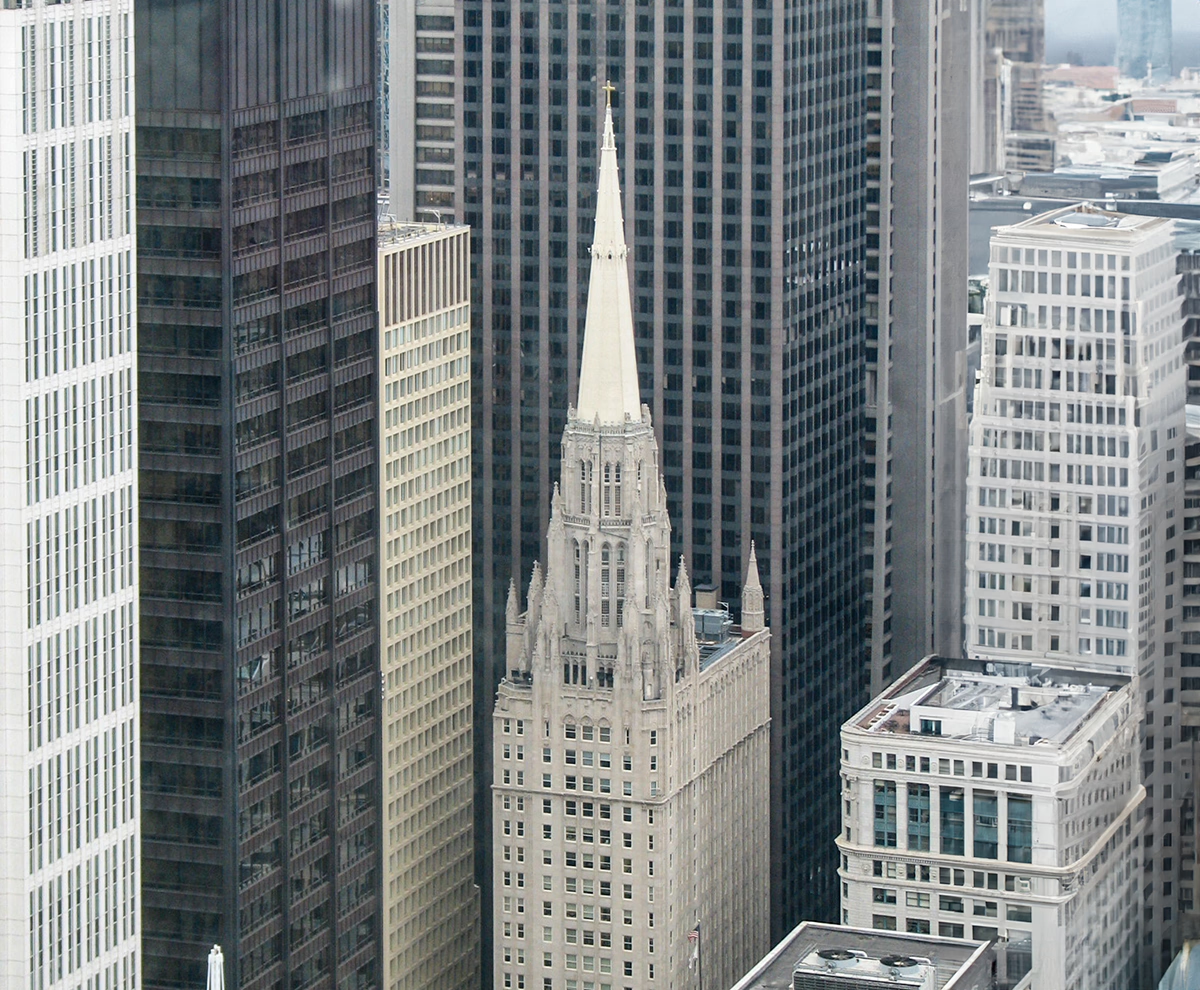Singer Building vs Chicago Temple Building


Comparing the Singer Building and the Chicago Temple Building is interesting because they both stand in Chicago, IL, and were completed within 2 years of each other, but they were designed by different architects.
This offers a unique glimpse at how rival designers approached projects in the same city during the same era.
Height & Size
The Chicago Temple Building is clearly the larger tower of the two, both in terms of height and number of floors. It rises to 568ft (173m) with 23 floors above ground, while the Singer Building reaches 0ft (m) with 10 floors above ground.
Of course, each project may have faced different briefs or regulatory constraints, which we don't really know about and could also explain the outcome.
Architectural Style
Both the Singer Building and the Chicago Temple Building were designed in line with the aesthetic conventions of the Neogothic style.
Both buildings were completed when the Neogothic style was already past its peak. This makes them feel like late echoes of the movement, more reflective of continuity or nostalgia than of cutting-edge design at the time.
Uses
The Singer Building is primarily residential, while the Chicago Temple Building is primarily religious.
Originally, the Singer Building was designed for commercial, but over time it was converted to residential. The Chicago Temple Building by contrast has maintained its original role.
The Singer Building offers 9 residential units.
Structure & Facade
Both the Singer Building and the Chicago Temple Building rely on a Frame structural system.
A frame structure uses a grid of columns and beams to carry the building's loads. This frees the walls from structural duties, allowing for flexible floor plans and larger windows.
They also employ the same type of facade, a Masonry facade.
A masonry facade gives the building a heavier, more traditional appearance. It often conceals a frame structure behind it, creating the look of solid walls without carrying the main loads.
| Singer Building | Chicago Temple Building | |
|---|---|---|
| Mundie & Jensen | Architect | Holabird & Root |
| 1925 | Construction Started | 1923 |
| 1926 | Year Completed | 1924 |
| Neogothic | Architectural Style | Neogothic |
| Commercial | Original Use | Religious |
| Residential | Current Use | Religious |
| 10 | Floors Above Ground | 23 |
| 2 | Number of Elevators | 2 |
| Frame | Structure Type | Frame |
| No | Facade Structural? | No |
| Terracotta | Main Facade Material | Limestone |
| Singer Manufacturing Company | Developer | First United Methodist Church |
| IL | State | IL |
| Chicago | City | Chicago |
| 120 S. State Street | Address | 77 West Washington Street |